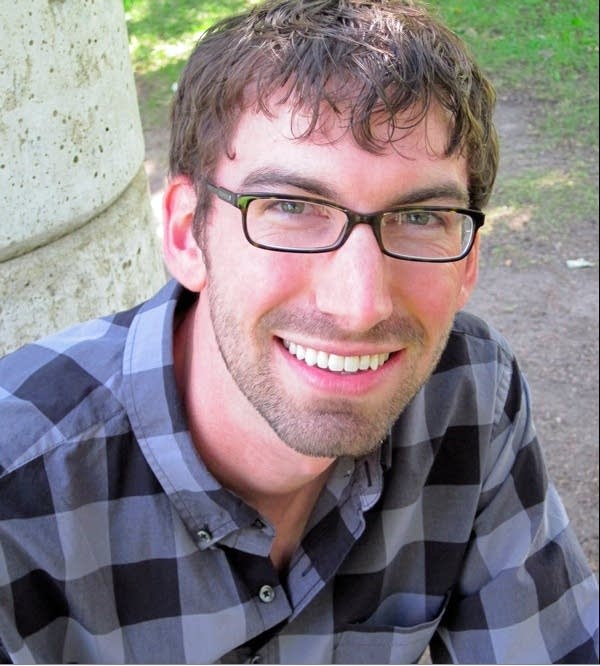To Whom it may concern: the art of the public invocation

I think it was in my second week as the new Presbyterian pastor in a rural northwest Minnesota town that I was asked to pray at a public gathering. I received -- and promptly accepted -- an invitation to give the invocation at a community Veterans' Day event held at the local school.
Initially, at least, the invitation struck me as a great way to become known in the community. But as the day of the event neared, I began to dread it. Praying aloud was no problem -- I'm a pastor, after all. But praying in a secular public setting was something altogether different.
This week, Sen. Terri Bonoff, DFL-Minnetonka, announced that she was "highly uncomfortable" during a prayer on the floor of the state Senate. After the prayer, Bonoff publicly raised an objection and asked that the pastor not be invited back. In the prayer, the Rev. Dennis Campbell, pastor of Granite City Baptist Church in St. Cloud, reportedly invoked the name of Jesus Christ multiple times. That alone would not make me uncomfortable, but Campbell's history certainly does -- including his anti-Islam newspaper ad, his support of anti-gay marriage groups, and his penchant for fear-mongering.
Religious leaders who agree to pray at public gatherings face an obvious challenge: Not everyone believes as they do. On the one hand, we pastors are asked to pray exactly because we hold particular beliefs and lead communities of faith. On the other hand, emphasizing the particularities of our faith can exclude others. So in public settings pastors must find a balance between prayers so particular they alienate and prayers so general there's really no point.
Create a More Connected Minnesota
MPR News is your trusted resource for the news you need. With your support, MPR News brings accessible, courageous journalism and authentic conversation to everyone - free of paywalls and barriers. Your gift makes a difference.
There are a few ways to make this happen.
One pastor I know, when offering such a prayer at a public gathering, introduces it by saying: "I stand before you as a Christian, and cannot pretend otherwise. However, I invite you to join me in prayer as your tradition allows." He then proceeds to pray, but does not invoke the name of Jesus specifically.
Other Christian pastors take another approach. They keep the whole business more general, neither mentioning their religious tradition nor Jesus Christ, intentionally referring to God using expansive and inclusive language.
It seems as if Sen. Bonoff prefers this latter approach, calling for "nondenominational" prayer." Sen. Ron Latz, DFL-St. Louis Park, who is also Jewish, said that prayers invoking the name of Jesus Christ make him feel as if he doesn't belong on the Senate floor.
Religious leaders invited to open the Senate in prayer are given a letter by the secretary of the Senate that states, "In an effort to be respectful of the religious diversity of our membership (Christian, Jewish and possibly others among them), we request that your prayer be interfaith and nonsectarian." Bishop Gene Robinson famously strove toward the same goal at one of President Obama's inauguration events by beginning his prayer, "O God of our many understandings." Robinson later explained this was to acknowledge "that no one Christian denomination nor no one faith tradition knows all there is to know about God."
The problem with this inclusive, so-called "interfaith" prayer is that it will never be inclusive enough. After Robinson's prayer, one commenter complained that she believed in a Goddess, not God, so even Robinson's "God of our many understandings" snubbed her faith. It is a disservice to all faiths to pretend they are the same or capable of being boiled down to a common denominator.
And what of those legislators who are not people of faith? In our search for inclusivity, might we soon be addressing prayers, "O God of our many understandings, and/or Goddess of our few understandings, and/or to the god many foolishly believe in"?
Earlier this year, the Hawaii Senate removed a rule requiring that its meetings open with an invocation. Facing a threatened lawsuit from the American Civil Liberties Union about the prayers' constitutionality, the Senate opted to do away with the requirement entirely.
Has God's power and love left Hawaii? In my understanding, absolutely not -- but, then again, that's just one understanding among many.
--
Adam J. Copeland is currently pastor of First Presbyterian Church in Hallock, Minn. He soon begins as mission developer for The Project F-M in Fargo-Moorhead. He is a source in MPR's Public Insight Network.
